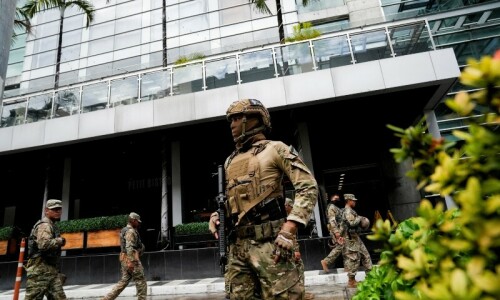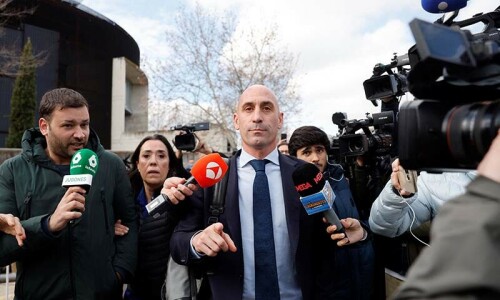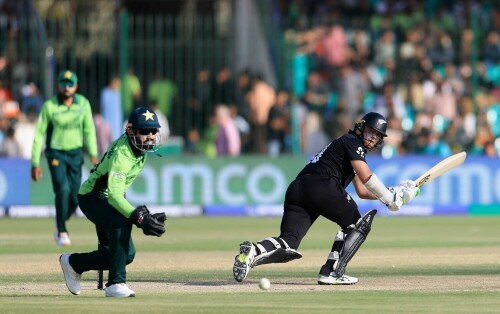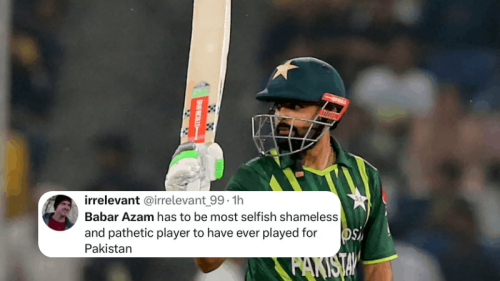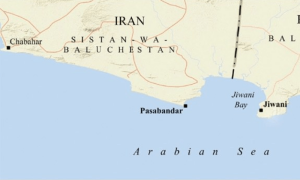BAGHDAD: Iraqi leaders have all but given up on holding the country together and, just two months after forming a national unity government, talk in private of “black days” of civil war ahead.
Signalling a dramatic abandonment of the US-backed project for Iraq, there is even talk among them of pre-empting the worst bloodshed by agreeing to an east-west division of Baghdad into Shia and Sunni zones, senior officials told Reuters.
Tens of thousands have already fled homes on either side.
“Iraq as a political project is finished,” one senior government official said — anonymously because the coalition under Prime Minister Nuri al-Maliki remains committed in public to the US-sponsored constitution that preserves Iraq’s unity.
One highly placed source even spoke of busying himself on government projects, despite a sense of their futility, only as a way to fight his growing depression over his nation’s future.
“The parties have moved to Plan B,” the senior official said, saying Sunni, ethnic Kurdish and majority Shia blocs were looking at ways to divide power and resources and to solve the conundrum of Baghdad’s mixed population of seven million.
“There is serious talk of Baghdad being divided into east and west,” he said. “We are extremely worried.”
On the eve of the first meeting of a National Reconciliation Commission and before Maliki meets President George W. Bush in Washington next week, other senior politicians also said they were close to giving up on hopes of preserving the 80-year-old, multi-ethnic, religiously mixed state in its present form.
“The situation is terrifying and black,” said Rida Jawad al -Takki, a senior member of parliament from Maliki’s dominant Shia Alliance bloc, and one of the few officials from all the main factions willing to speak publicly on the issue.
“We have received information of a plan to divide Baghdad. The government is incapable of solving the situation,” he said.
As sectarian violence has mounted to claim perhaps 100 lives a day and tens of thousands flee their homes, a senior official from the once dominant Sunni minority concurred: “Everyone knows the situation is very bad,” he said. “I’m not optimistic.”
Some Western diplomats in Baghdad say there is little sign the new government is capable of halting a slide to civil war.
“Maliki and some others seem to be genuinely trying to make this work,” one said. “But it doesn’t look like they have real support. The factions are looking out for their own interests.”
The presence of 140,000 heavily armed foreign troops, most of them Americans, is keeping a lid on open grabs for territory by armed groups from various communities. But few see Washington willing to keep troops in Iraq indefinitely and many analysts question the new, US-trained Iraqi army’s cohesion.
Broadly speaking Iraq could split in three: a Shia south, Kurdish north and Sunni Arab west. But there could be fierce fighting between Arabs and Kurds for Mosul and for Kirkuk’s oil as well as urban war in Baghdad, resembling Beirut in the 1970s.
Officials say the Tigris river is already looking like the Beirut “Green Line”, dividing Sunni west Baghdad, known by its ancient name of Karkh, from the mainly Shia east, or Rusafa.
The US ambassador, Zalmay Khalilzad, and Washington’s top military commander issued a public appeal this week: “We call on Iraqi leaders to take responsibility and pursue reconciliation not just in words, but through deeds as well,” they said.
But a European diplomat said: “I wonder if accepting there must be division, and civil war, might be the only option ... It may be unavoidable and so it’s better to get it over with.”
In public, Iraqi and US officials make no secret of the gravity of the situation, five months after the destruction of shrines of Imam Ali Naqi and Imam Hassan Askari at Samarra launched a new phase of conflict, with Shia militias now as lethal as Sunni insurgents.
Maliki has called his national reconciliation plan, offering amnesty for some rebels and promising to rein in militias, the “last chance” for peace. Khalilzad has said the government, hailed by Bush as a major success for US-installed democracy in the Middle East, has just months to prove itself. Even militia commanders say popular anger means ordinary people, most of them armed, are ignoring calls for restraint.—Reuters
















